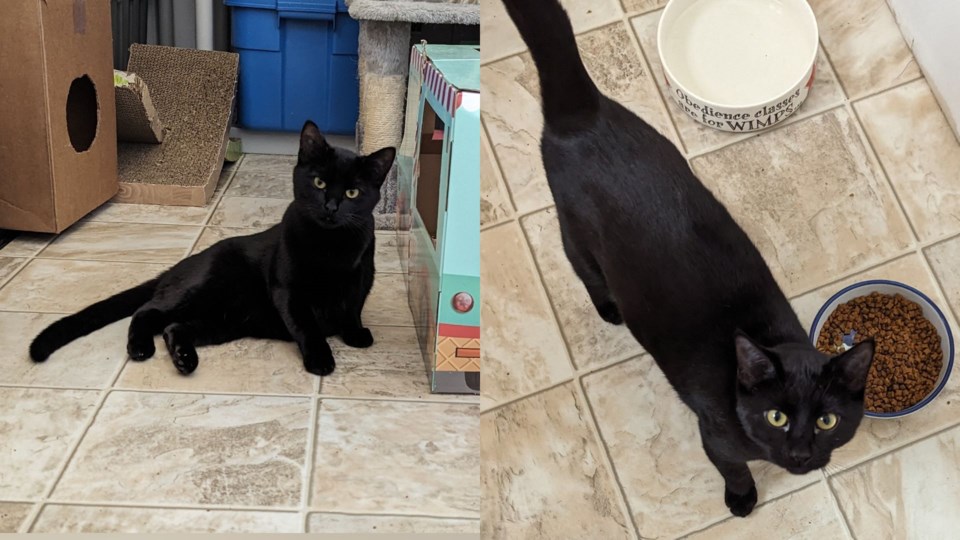Lucky and Dusty came to the Regional Animal Protection Society Cat Sanctuary with their brother Ned. Ned tested negative for feline leukemia and was quickly adopted into a great home. Lucky and Dusty tested positive — and they are waiting at the sanctuary for a special family to recognize their awesomeness.
A leukemia diagnosis is a near-guarantee the animals will not be adopted. It’s not that a cat with leukemia can’t live a long and healthy life. It’s simply that cat adoption is, put bluntly, a buyer’s market. Given the choice of a cat with a chronic (but manageable) condition or a kitten or cat with no identified health conditions, the average adopter will go for the latter.
Feline leukemia is not a death sentence, says Valerie Wilson, assistant manager of the RAPS Cat Sanctuary.
“We have had cats with leukemia live to 18 years old,” she says. With a good diet and a stress-free life, there is little reason cat with leukemia can’t enjoy a long life.
Like most responsible animal organizations, RAPS requires potential adopters to commit to keeping their cats indoors or to have a “catio” or window hammock to give the cat fresh air safely, or to walk it on a leash and harness. This is infinitely more important with a cat who has leukemia as it is a contagious viral disease.
“Cats get leukemia through saliva,” says Wilson. “They get it through grooming each other, biting or sharing water dishes or food bowls. Cats with leukemia can live with other cats with leukemia but not with cats who don't have leukemia.”
Leukemia lowers the animal’s immunity, making them far more vulnerable to secondary infections, like anemia and lymphoma. Potential adopters might be turned off by the idea that this inevitably means high vet bills over the cat’s lifetime. Wilson says that this is not necessarily the case.
“This is the sad part — if they get sick, they go downhill quickly,” she says. A cat with leukemia is not inevitably going to rack up the vet bills because, sadly but simply, if they get sick, they probably won’t live long. “That's sad, but if you can give them a good life, you have really made that one animal’s life a happy one for as long as possible.”
Lucky and Dusty (along with Ned) came to RAPS last summer, after being rescued from the wildfires in the Okanagan. They are less than a year old and thrive on human attention.
“They are very sweet,” Wilson says. “They want to be on your lap.”
That friendliness is an achievement of RAPS dedicated “kitty comforters,” because when they arrived, they were feral kittens and very afraid of humans. The bonded pair are looking for a forever home together. Both of them are jet black, but you can tell them apart because Lucky is extremely verbal while Dusty has a little patch of white on his belly.
“She's got the softest fur you will probably ever feel,” says Wilson, whose work at Canada’s largest cat sanctuary means she has petted more cats than most living humans.



